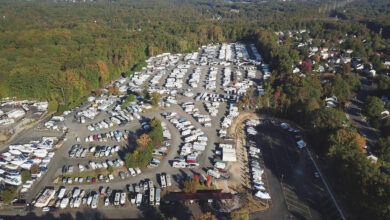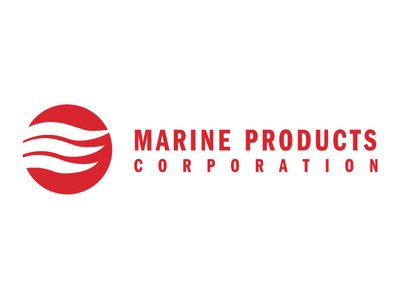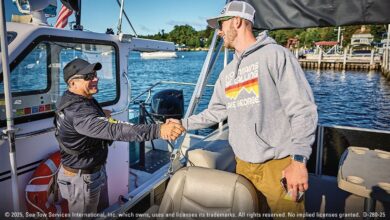Here we go again?
Although boat owners and marine industry members across the Gulf Coast are still recovering from the record-breaking 2005 hurricane season, the 2006 season is just around the corner.
Even though an above-average number of named storms are expected this year, the hurricane forecasters at the Department of Atmospheric Science at Colorado State University do not expect as many major storms to strike the U.S. as during the past two years. Last year saw 26 named storms, and 14 hurricanes. The 2006 forecast estimates 17 named storms, nine of which will develop into hurricanes.
But the 2005 hurricane season was one for the record books. Damage estimates from Hurricane Katrina have been put between $75 and $200 billion, making it the most-expensive hurricane in U.S. history. Hurricanes Wilma and Rita also rank in the top 10 in terms of damage.
“We don’t like (hurricanes), and we don’t want any more of them,” says Thom Dammrich, president of the National Marine Manufacturers Association, the marine industry’s trade group that produces 23 consumer boating shows annually.
The group’s New Orleans Boat Show was delayed by a month to early March and moved from the still-damaged Superdome to the Morial Convention Center. While attendance was down 28 percent, “every dealer was reporting strong sales,” says Barbara Sclafani, show manager. “One hour after the show opened, they were selling boats.” One boat dealer reported selling more boats at the ’06 show than in the last three years combined, Sclafani says.
Despite a huge population drop in New Orleans, from 500,000 residents before Katrina hit to 160,000 presently, boat show attendance was off by only 5,000.
“It was successful beyond any reason,” Sclafani says. “If (attendees and exhibitors) are not happy, you hear from them. This year, I had to go search them out.”
Boat show and Superdome officials were renegotiating the contract for 2007-2010 when Katrina roared ashore, and now the boat show has 2007 dates at both venues. A decision about where to stage the ’07 show will be made soon, Sclafani says.
A neutral impact
While hurricanes can devastate particular geographic areas, Dammrich notes that hurricanes, overall, have a neutral impact on the industry.
Attendance dropped considerably at the Fort Lauderdale International Boat Show, which was delayed a week and shortened a day by Hurricane Wilma.
“Wilma gave us a reality check second to none,” says Frank Herhold, executive director of Marine Industries Association of South Florida, which owns the show. “We lost 61 out of 1,400 exhibitors, and attendance was down 29 percent. But sales reports were good to great. (The hurricane) thinned out the crowds so buyers could buy.”
Herhold credits then-show producer Kaye Pearson and his staff with mitigating potential damage by stripping the skins off all but five tents and moving computers off the property. Fortunately, no boats had been moved into the marina, which sustained minimal damage.
MIASF polled its members immediately following the hurricane, and a vast majority voted for the show to go on. “Ninety-seven percent of members that were scheduled to exhibit came,” Herhold says. “Three percent could not be there, and we advocate for our members.”
As the show dates changed, communication with vendors and attendees proved troubling because the show’s Web site was down. Plans call for the Web site and phone banks to be maintained out of the area in the future, Herhold says.
A larger impact for consumers
For current boat owners, as boat losses mount, especially in the Florida market, some insurance carriers are excluding coverage for named storms.
“We have taken a position not to place business with carriers that exclude named storms coverage, as we feel it is a disservice to our clients,” says Ruth Nichols, agency manager at Veritas Insurance Groups, St. Petersburg, Fla.
But many boat owners are facing a tougher time finding insurance as carriers refine the maximum value and length of boats they will insure, increase deductibles and raise rates.
The insurance industry is cyclical, with higher losses over several years tempered by fewer losses during other times.
“Other than a few short months during which carriers and reinsurers waited to see the ultimate financial impact, the industry in general did not significantly change,” Nichols says.
Hurricane damage to boats is a boon to salvagers such as Salvage Direct Inc., which has recovered more than 3,400 watercraft as a result of the 2004 and 2005 hurricanes, says Alan Tate, vice president of sales and customer development. Recovered boats are sold “as is” at auctions over the Internet to qualified dealers.
The Titusville, Pa.-based company has sold about half the boats that have been recovered in the past 18 months, Tate notes.
“When multiple hurricanes hit, logistically speaking, it’s a challenge to respond,” Tate says. During the ’05 hurricane season, Salvage Direct recovered 1,600 boats from Katrina, 350 from Wilma and 100 from Rita.
National Liquidators has salvaged more than 300 vessels from Katrina and Wilma, says Bob Toney, president of the Fort Lauderdale-based company. Boats salvaged by National Liquidators included boats over 50 feet in length and weighing up to 50,000 pounds, Toney says.
Last year’s hurricanes also disrupted many businesses, including the Pompano Beach, Fla., manufacturing facility of Dometic Environmental Corp.
“We had to get the place up and running so we could service our customers,” says Frank Marciano, president.
The company supplies marine air-conditioning systems under the Cruisair and Marine Air brands to the pleasure boat market, and many of the company’s customers were not affected by Hurricane Wilma.
Two days after Wilma tore half the roof off of the north side of the building and water damaged some products, the factory was back in production, thanks to the efforts of many employees who pitched in to help. The factory had a small backup generator, but it wasn’t large enough to sustain plant operations. Corporate office workers in Elkhart, Ind., helped locate a 275-kilowatt generator in Miami and released the $45,000 required to buy it.
Dometic engineers had it installed in a day and even helped a gas station owner restore power so they could obtain critical diesel fuel to run the generator.
“All of these people had experienced a personal loss, but they were here,” Marciano says of his employees. Thursday morning, two days after the storm hit, “most employees were back at work, and the factory was up and running, making product.
“I left Thursday for a business trip confident that we had gotten past the worst of it,” Marciano says. “People were happy because they had work, cold drinks and snacks. They had more here than they had at home because their power still was out.”




